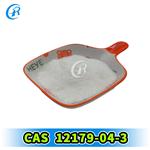Description
Celite mainly refers to diatomaceous earth. It is a naturally occurring, soft, siliceous sedimentary rock. It is consists of fossilized remains of a type of hard-shelled algae, diatoms. It contains mostly silica (80% to 90%) as well as small amount of alumina and iron oxide. Celite has various applications. It can be supplied to the explosive to make them more stable for transport. It can also be used as a filtration acid as well as abrasive to be used in toothpaste, metal polishes as well as some facial scrubs. It can also be used as an insecticide for pest control. Its thermal properties make it be used as the barrier material in some fire resistant safes. It can also be used as a liquid absorbent, matting agent of coatings, catalyst support, activator in blood clotting studies, stabilizing component of dynamites, and a thermal insulator. It is also useful in construction.
References
https://en.wikipedia.org/wiki/Diatomaceous_earth
Description
Diatomaceous earth is a transparent to gray,odorless amorphous powder. Molecular weight = 60.78;Specific gravity (H2O:1) = 2.20; Boiling point = -230℃;Freezing/Melting point = 1710℃. Hazard Identification(based on NFPA-704 M Rating System): Health 1,Flammability 0, Reactivity 0. Insoluble in water.
Chemical Properties
tan powder
Chemical Properties
Diatomaceous earth is a transparent to gray,
odorless amorphous powder.
Chemical Properties
Amorphous silica, the noncrystalline form of SiO2, is a transparent to gray, odorless, amorphous powder
Uses
Chemically,
diatomaceous earth is mostly amorphous silicon dioxide,
accompanied by mineral salts, with large surface area.
Its use as an insecticide dust is based on its capability to
absorb moisture, oils, and waxes (48).
Uses
Filter Aid, Celite AW Standard Supercel? is used for general filtrations. It is also used as a functional filler in paints, plastics, paper, rubber, adhesives, catalysts, agricultural chemicals, pharmaceuticals and other chemicals, and a mild abrasive in polishes and cleaners. It is also used in clarifying liquids and oils, as an efficient thermal insulator; in manufacture of heat insulators, fire brick, and fire- and acid-proof packing materials; as an absorbent; in absorbent dynamite; as a solid carrier in chromatography; pozzolanic admixture in concrete mixes.
Uses
Highly insoluble, inert material for use as a filtration aid.
Definition
Diatomite: A whitish powdered
mineral consisting mainly of silica (silicon(
IV) oxide) derived from the shells of
diatoms. It is used to make fireproof cements
and as an absorbent in the manufacture
of DYNAMITE.
General Description
Celpure
? P65 (Diatomaceous earth, DE) is natural amorphous silica formed from the fossilized skeletons of diatoms. It is extracted, crushed, dried and calcined with or without flux material. DE is widely used as filler in construction materials, paints and as an anti-caking agent for agricultural chemicals. It has high water and oil absorption ability. The potential toxicity of different samples of DE has been assessed. DE is also employed as an adsorbent for column chromatography.
Agricultural Uses
Diatomaceous earth: Diatomaceous earth kills and repels insects, including
bed bugs, fleas, cockroaches, and carpet beetles, by
dehydrating them, rather than chemically poisoning them,
and has been used since early times. It is also used as a filtering
agent and as a filler in construction materials, pesticides,
paints, and varnishes. The calcined version (which
has been heat treated) is the most dangerous and contains
crystallized silica, and should be handled as silica.
Trade name
CELITE®; CROP GUARD®; DIACTIV®;
DIAFIL®; DI-ATOMATE®; DIE-SECTICIDE®;
KENITE®; PRIMISIL®
Potential Exposure
Diatomaceous earth is used as
a filtering agent and as a filler in construction materials,
pesticides, paints, and varnishes. The calcined version
(which has been heat treated) is the most dangerous and
contains crystallized silica, and should be handled as silica.
See also other entries on silica
First aid
If this chemical gets into the eyes, remove anycontact lenses at once and irrigate immediately for at least15 min, occasionally lifting upper and lower lids. Seek medical attention immediately. If this chemical has beeninhaled, remove from exposure, begin rescue breathing(using universal precautions, including resuscitation mask)if breathing has stopped and CPR if heart action hasstopped. Transfer promptly to a medical facility.
storage
Color Code—Green: General storage may be used.Store in tightly closed containers in a cool, well-ventilatedarea.
Shipping
This material is not singled out by DOT
in its
Performance-Oriented Packaging Standards.
Incompatibilities
Silica, amorphous is a noncombustible solid. Generally unreactive chemically. Incompatible with fluorine, oxygen difluoride, chlorine trifluoride. Soluble in molten alkalis and reacts with most metallic oxides at high temperature.
Waste Disposal
Sanitary landfill.


